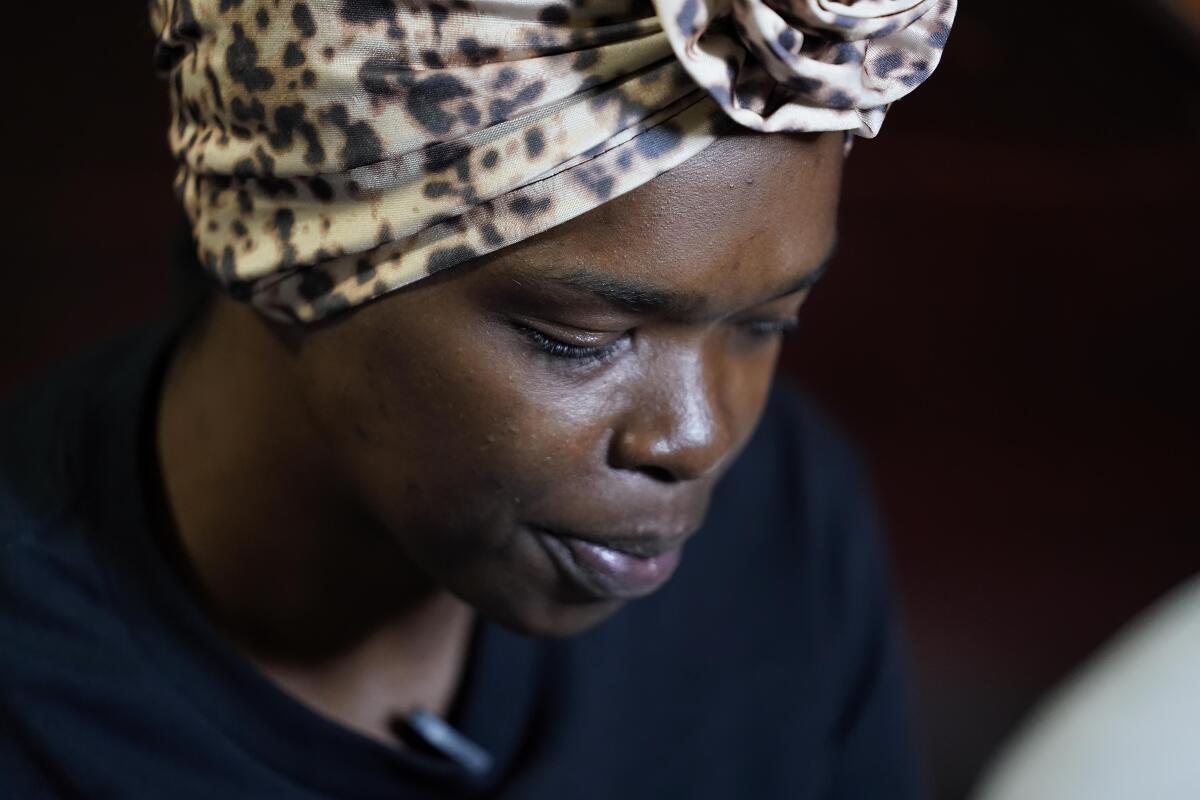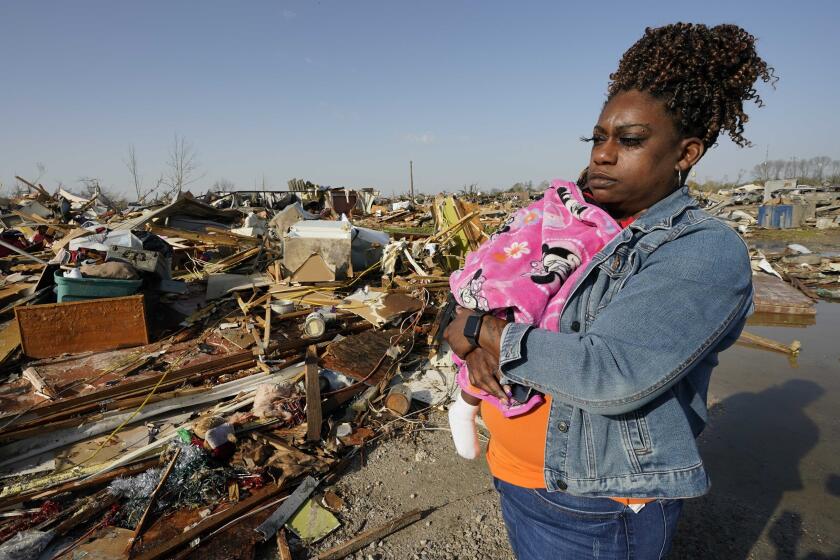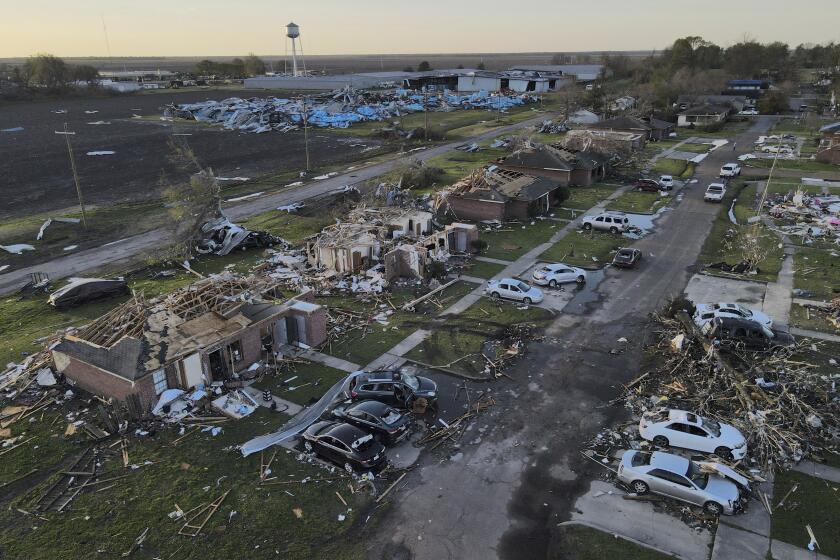‘We were in the air.’ Mississippi family recounts surviving tornado that tore apart mobile home

- Share via
ROLLING FORK, Miss. — Streams of air whirled by Ida Cartlidge in every direction, but she couldn’t breathe.
Between the thin walls and above the shaky foundation of a mobile home, Cartlidge, 32, miraculously survived a March tornado that carved a path of destruction through Rolling Fork, Miss. Mobile home residents in the path of a twister’s fury often don’t live to recount the experience.
“It sounded like a real loud train coming through,” Cartlidge said. “And I could feel the wind, it was so powerful you couldn’t even breathe while you were in the air.
Cartlidge and her husband, Charles Jones, 59, had forged a quiet life in Rolling Fork with their three sons. She worked in customer service for an appliance company and Jones for an auto parts shop. They viewed Rolling Fork as a refuge from city life and an ideal place to raise kids. The family lived in a mobile home park behind Chuck’s Dairy Bar, a diner that had long been a nexus of local life for Rolling Fork residents.
Then the tornado tore through the the park, making it a point of misery.
Most of the 14 people who died in Rolling Fork when the March 24 tornado hit the Mississippi Delta lived in the mobile home park, with large families crowding into one or two-bedroom units. Such living arrangements have been a way to offset the financial strain endemic to the Mississippi Delta, where poverty is prevalent and stable jobs are scarce.
Tornadoes tore through Mississippi as severe weather that produced hail the size of golf balls moved through several Southern states.
Tornadoes in the United States are disproportionately killing more people in mobile or manufactured homes, especially in the South. Since 1996, tornadoes have killed 815 people in mobile or manufactured homes. That’s 53% of all the people killed in their homes during a tornado, according to an Associated Press data analysis of National Oceanic and Atmospheric Administration tornado deaths.
Cramped living arrangements forced mobile home inhabitants to shelter just as they lived: with little space between them.
“The only thing I could tell them to do was get on the floor,” said Charles Jones, Cartlidge’s husband. “And I got on top. I got on top of my family.”
High poverty rates in counties struck by the massive tornado that pushed through Mississippi on Friday add to the challenges of recovery.
Just seconds before Cartlidge found herself burrowed beneath her husband on the mobile home’s living room floor, her father had called her. He had been watching the news and saw that a tornado had touched down in Rolling Fork.
Cartlidge heard car windows shattering outside. The home’s windows shattered next. She scooped up her 1-year-old son and dove to the floor, with her 11- and 12-year-old sons next to her and Jones atop them. They didn’t know the incoming winds had reached 200 mph. The storm’s force was instead measured by the fear it induced.
“The only thing that’s holding a mobile home down are the little straps in the ground,” Cartlidge said. “It picked up the home one time, set it down. It picked it up again, set it down. It picked it up a third time, and we were in the air.”
Her future was suspended in the air alongside her home. “You don’t know what’s happening next, whether you’re going to live through it or not,” she said.
The next thing Cartlidge remembers is lying with her back on the ground and the baby resting on her chest. He was the only member of the family who made it through the storm unscathed.
Her fear didn’t subside. “All you could hear were people screaming and hollering for help,” she recalled.
Cartlidge propped herself up with a piece of wood and walked to the highway. She could feel her bones shifting with every step.
She suffered a crushed pelvis bone and broken shoulder. One of her sons punctured a lung and had shattered bones in his spine and shoulder blade. Jones injured his ribs and spine.
Since returning from the hospital, the family has been living in a motel room only minutes down the highway from where their mobile home used to be. Rain storms still make Cartlidge and Jones anxious, because they experienced the raw force of a twister first-hand.
“The tornado’s going to win every time,” Jones said. “It’s just like when a nail meets a tire.”
More to Read
Sign up for Essential California
The most important California stories and recommendations in your inbox every morning.
You may occasionally receive promotional content from the Los Angeles Times.












